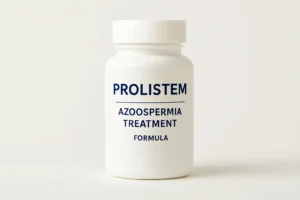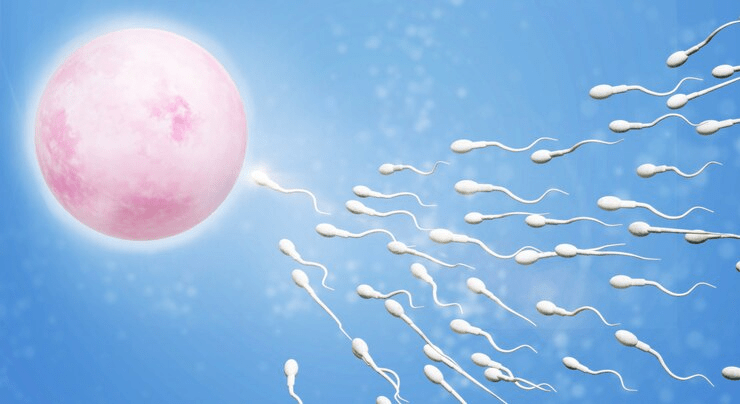
Prolistem azoospermia treatment
Azoospermia, the absence of sperm in the semen,

If you’re trying to conceive or simply want to improve your reproductive health, learning how to boost sperm production is a critical step. Male infertility is often caused by low sperm count, poor motility, or abnormal morphology — all of which can affect your chances of fathering a child.
Fortunately, there are several natural and medical ways to enhance sperm health and fertility. In this complete guide, we’ll cover causes of low sperm count, lifestyle changes, the best foods and supplements, medical options, and expert advice for increasing sperm production effectively.
Sperm production, medically known as spermatogenesis, is the process by which the testicles produce sperm cells. It takes around 70 days for a sperm cell to fully mature. This process depends on a delicate balance of hormones such as testosterone, follicle-stimulating hormone (FSH), and luteinizing hormone (LH).
A healthy sperm count and quality are essential for natural conception. Any disruption in this process can lead to reduced fertility or infertility.
To boost sperm production, it’s essential to understand what negatively impacts it. Common causes of low sperm count and quality include:
Hormonal imbalances
Varicocele (enlarged veins in the scrotum)
Poor nutrition
Obesity
Excessive alcohol or drug use
Tobacco smoking
Exposure to toxins (pesticides, heavy metals)
Chronic stress
Lack of physical activity
Overheating the testicles (hot tubs, saunas, tight underwear)
Addressing these root causes is the first step toward improving male fertility.
Before jumping into medications, start with natural approaches. Many men can improve sperm count and quality through simple lifestyle and diet changes.
What you eat has a direct impact on sperm health. Focus on a diet rich in:
Antioxidants – found in fruits and vegetables like blueberries, oranges, and spinach.
Healthy fats, such as omega-3s in fish, nuts, and seeds.
Lean proteins – like chicken, eggs, and legumes.
Zinc and selenium – found in oysters, pumpkin seeds, and sunflower seeds.
Folate and vitamin B12 – essential for healthy sperm DNA.
Moderate, consistent exercise can help maintain a healthy weight and improve testosterone levels. Aim for at least 30 minutes of activity five days a week, such as:
Brisk walking or jogging
Weight training
Cycling (with proper seat padding)
Avoid overtraining, which can lower testosterone and impact sperm production.
Chronic stress increases cortisol levels, which interfere with testosterone and spermatogenesis. Try stress-reducing techniques like:
Meditation or yoga
Deep breathing exercises
Journaling
Spending time in nature
Poor sleep reduces testosterone and overall hormonal function. Aim for 7–9 hours of uninterrupted sleep each night.
Sperm need cooler temperatures than the rest of the body. To reduce heat around the testicles:
Avoid prolonged hot showers, hot tubs, and saunas
Don’t place laptops directly on your lap
Wear breathable cotton underwear and loose-fitting clothes
Fuel your body with fertility-enhancing superfoods. These are some of the best foods to boost sperm production:
| Food | Benefit |
|---|---|
| Oysters | High in zinc, supports testosterone |
| Spinach | Rich in folate, it aids in sperm development |
| Walnuts | Provide omega-3s for motility |
| Bananas | contains bromelain, boosts libido, and sperm count |
| Dark chocolate | Full of antioxidants and L-arginine |
| Eggs | Packed with protein and vitamin E for sperm protection |
| Carrots | Promote sperm motility with beta-carotene |
Eating a balanced diet with these nutrients can help repair sperm damage, improve count, and support healthy hormone production.
Sometimes diet alone isn’t enough. Certain supplements can play a big role in male fertility and sperm health. Common and science-backed supplements include:
Essential for testosterone production and overall sperm health.
Improves DNA integrity in sperm and works best when paired with zinc.
Powerful antioxidants that reduce oxidative stress and improve sperm motility.
Helps sperm cells generate energy and move more efficiently.
Boosts energy production in sperm cells and enhances motility.
A natural adaptogen that reduces stress and boosts testosterone levels.
An amino acid that may increase hormone levels related to sperm production.
⚠️ Important: Consult your healthcare provider before starting any supplement to ensure safety and proper dosage.
If natural efforts aren’t successful after 3–6 months, medical treatments might be necessary. Here are common medical options:
If hormone imbalance is the cause, doctors may prescribe medications like Clomid or HCG to stimulate sperm production.
Repairing varicocele (enlarged veins in the scrotum) through surgery can significantly improve sperm count and motility.
If an infection is present, targeted antibiotics may restore sperm health.
Options like IUI (Intrauterine Insemination), IVF (In Vitro Fertilization), or ICSI (Intracytoplasmic Sperm Injection) are effective for severe infertility cases.
Some habits significantly lower sperm quality. To protect and boost sperm production, avoid:
Smoking damages DNA in sperm cells
Excess alcohol consumption lowers testosterone and sperm count
Recreational drugs – especially marijuana, cocaine, and anabolic steroids
Exposure to radiation or industrial chemicals
Excess weight gain – linked to hormonal imbalances and poor sperm quality
Prolonged sitting or tight underwear increases scrotal temperature
Making healthier choices in your daily life can make a big difference over time.
If you’ve tried natural and medical methods without success, it’s time to consult a fertility expert. Seek help if:
You’ve been trying to conceive for over 12 months without success
You have a known medical condition affecting fertility
You experience testicular pain or swelling
You’ve had previous surgeries or infections in the reproductive system
Your semen analysis shows abnormal results
A fertility clinic will conduct hormone tests, imaging, and semen analysis to find the root cause and provide personalized treatment.
Improving male fertility takes time, effort, and sometimes professional support. By adopting a healthy lifestyle, eating a balanced diet, avoiding harmful habits, and considering supplements or treatments when needed, you can effectively boost sperm production and improve your chances of conception.
Your reproductive health is a reflection of your overall wellness — treat it with care, patience, and consistency.

Azoospermia, the absence of sperm in the semen,

Prolistem for non obstructive azoospermia, Non-obstructive azoospermia (NOA)

Introduction Male infertility, especially caused by azoospermia, affects

We are proud to have participated in the
PROLISTEM® is a Patented Formula
Copyright © 2025 Prolistem®